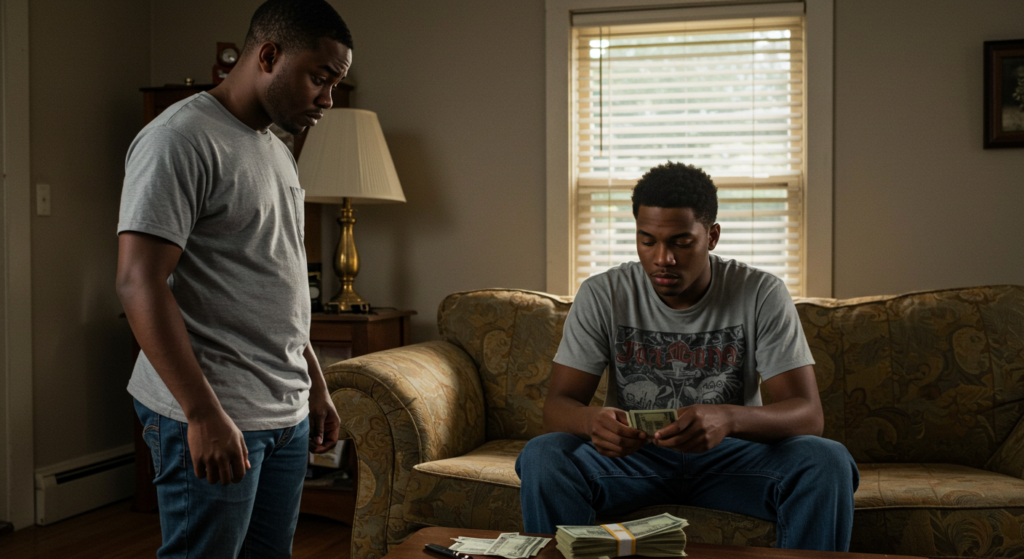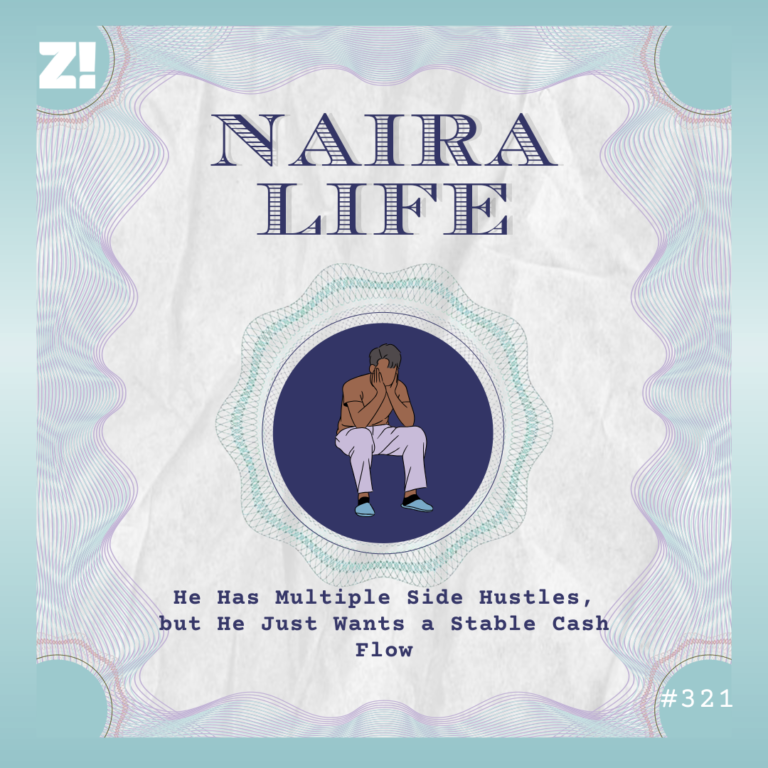In Nigeria, it’s a common sentiment that firstborn children automatically become the people their younger siblings go to for money. In essence, it’s expected that the elder child has more money. But what happens when the reverse is the case, like it is for Wale*?
In this story, 28-year-old Wale shares how he grew up believing he had to provide for his younger siblings. Unfortunately, his younger brother has always been better off, which has translated to finances. Wale now struggles with resentment at his brother’s success and his own perceived failures.
As told to Boluwatife

One of my earliest childhood memories is of a time my mum scolded my two younger siblings for calling me by my first name. They had to call me “Brother Wale” or be punished.
My mum is big on respect and culture and instilled that consciousness into her children. We knew we had to prostrate to greet every older person and could never question elders. In our house, my siblings didn’t dare to pick a snack or toy until I’d made my choice.
Once, my younger brother wanted to watch a cartoon show, but I was watching something else, so my mum refused to let him change the channel.
She told him, “Ask your brother to consider changing the channel or you watch what he’s watching.”
That was how it was at home. It didn’t matter that I was only a little over a year older than my immediate younger sibling and three years older than our last born. As the firstborn, I deserved the first pick of everything.
My mum also emphasised the need for me to look out for my siblings. As the first child and default head of the family after my dad, I had to care for and provide for my siblings.
So, during my siblings’ birthdays, my mum would ask, “What did you buy for your brother?” She also regularly prayed, “May you be the head indeed and set a path for your younger ones.”
As a result, I believed I needed to be ahead in every way to be a worthy elder brother. But it isn’t the easiest thing to do, especially if you have a genius younger brother.
Since primary school, my immediate younger brother, Kunle, has been ahead of me.
First, it was academics. He always snagged first position and several awards in his class while I struggled with third or fourth positions in mine. This didn’t rub off well on me.
My mum never compared our results but always nudged me to work harder to reach my full potential. I felt she did this because Kunle was doing so well, and I didn’t like it. But try as I may, school just wasn’t my strong suit.
Fast forward to secondary school, the girls flocked to Kunle more. He was a school prefect and girls liked smart boys, but I often got jealous of the attention he was getting. Thankfully, we didn’t attend the same university, so I didn’t have to compare myself to him. We also finished with the same second-class upper grade.
Now that we’re both adults, I have another thing to worry about: Kunle is more successful and has significantly more money than I do. He works in tech, and while I don’t know his actual salary, I know he earns in dollars and makes at least ₦1.5m monthly. Meanwhile, I’m here, waking up at 5:30 a.m. every day, fighting for my life at a ₦270k/month marketing job.
It probably sounds like I’m not happy for my brother — I am. I’m glad he’s doing well. It’s just that his life and career trajectory make me feel like I’m not growing as much as I should. I can’t make certain decisions because I don’t have as much money, and it doesn’t feel good.
For example, for my mum’s birthday last year, Kunle suggested that we gather ₦1.5m each over nine months to buy her a small car. I felt both insulted and useless. He knows I don’t earn as much as he does, so suggesting that amount felt like a dig at me. I should have been leading the conversation about what to get for our mother. But I couldn’t.
I hate what not having as much money as my younger brother means for me. Kunle should be the one who looks up to me or bills me, but I’m the one who occasionally has to ask him for loans . Most of the time, he doesn’t allow me to repay the loans, but that only makes me feel worse.
As if that’s not enough, Kunle has his apartment while I still live with our mum. It’s like I’m just a figurehead claiming to be an elder brother, and honestly, I’m jealous of his progress.
This situation has affected our relationship. We weren’t super close as children, but we talked to each other and joked about our struggles. But there’s been a dynamic shift. As adults, it only makes sense that many of our conversations will revolve around money, the economy and our relationships.
I can’t just call my brother to rant because I fear he’ll assume I need money and offer to help me. So, I avoid talking to him instead.
We also can’t hang out as much because how do I explain I don’t have ₦20k to spend on drinks and food? Our communication has inevitably reduced to sending each other happy birthday messages and greetings when we see each other.
My mum doesn’t say it, but I’m sure she’s disappointed I’m not “taking the lead” like she expects. I know it’s not exactly my fault. The economy is terrible, and many Nigerians like myself don’t earn enough to live comfortably despite working so hard.
People like my brother are a rarity — not many people will get the opportunity to work for foreign companies and earn so much. Still, I can’t help the resentment and feeling like I’m not doing enough. I keep hustling to get a better job to increase my income, but I’ve gotten nothing.
Maybe I wouldn’t feel so bad if my brother weren’t as successful as he is. Or maybe I still would. I can’t say for sure, but this is my reality. I don’t feel like a worthy firstborn, which greatly bothers me. I can only hope things change for the better soon.
*Names have been changed for anonymity.
Before you go, join other Zikoko readers to help us create better content for you by taking this 10 minute survey.
NEXT READ: I Lost My Parents to Inheritance Wars. I’m Not Leaving Money to Any Family

Click here to join the waitlist for Zikoko’s first-ever money event!




